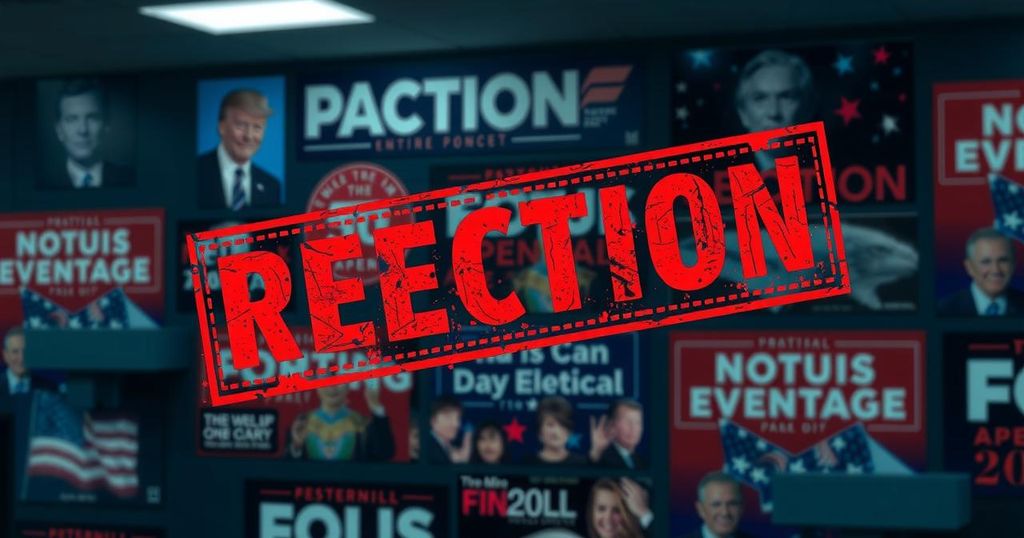Historic Election Reforms Rejected by Voters Despite Significant Support

Voters across several states have rejected attempts to implement election reform, including ranked choice voting and open primaries, despite a concerted fundraising effort that exceeded $110 million. Experts attribute this resistance to a continued preference for traditional voting methods, indicating potential challenges ahead for advocates of electoral change who may need to rethink their strategies for future initiatives.
In a disappointing turn of events for election reform advocates, an ambitious push for changes in voting methods was overwhelmingly rejected by voters in several states across the United States. Despite collecting over $110 million in funding, initiatives aimed at establishing ranked choice voting and open primaries faced strong opposition. The outcomes signal a lingering preference among voters for traditional voting practices, contrasting the high hopes that activists held following recent reforms in Alaska and Nevada, where initial steps toward similar measures had been approved.
Among the numerous state ballot initiatives advocating for various voting reforms, proposals in states like Arizona, Colorado, and Oregon met with widespread rejection. Voters were presented with the possibility of open primaries, allowing all candidates to appear on a single ballot, alongside ranked choice voting, which permits voters to rank candidates by preference. However, analyses indicate that voters may not yet be ready to embrace these new voting methodologies, settling instead for established norms.
John Opdycke, President of Open Primaries, expressed disappointment, stating, “It turns out, in retrospect, we weren’t yet ready for prime time.” This sentiment was echoed by Trent England, Executive Director of Save Our States, who remarked that despite public frustration with politics, Americans seem satisfied with traditional voting processes.
The results from this election cycle are particularly noteworthy as they come on the heels of a notable victory for ranked choice voting in Alaska in 2020, and preliminary approval of similar measures in Nevada last year. However, the recent reversals in voter support reflect a complex landscape for election reforms. In Alaska, a close attempt to repeal the reform just failed, gaining a narrow 49.9% support. Conversely, areas such as Washington, D.C., and parts of Illinois have approved ranked choice voting, highlighting divergent attitudes toward this method.
The context surrounding the current state of election reform initiatives in the United States reflects a broader movement aimed at reshaping how elections are conducted. Advocates for reform view traditional partisan primaries and plurality voting as outdated and seek to introduce measures that allow for greater voter choice and representation. However, the recent elections indicate a clash between these progressive ideals and the preferences of a substantial segment of the electorate, which appears hesitant to shift from established voting methods. Historical precedents of implemented reforms in places like Alaska and Oregon provide a complex backdrop that contrasts with the current electoral outcomes in various states this cycle.
In conclusion, the significant financial backing and mobilization efforts for election reform measures did not translate to voter support in several key states. The failure to pass initiatives such as ranked choice voting and open primaries suggests that voters remain largely attached to traditional electoral systems. As advocates reassess their strategies, the need for deeper community engagement is emphasized in order to garner the necessary support for future initiatives aimed at reforming the electoral landscape in America.
Original Source: gazette.com







